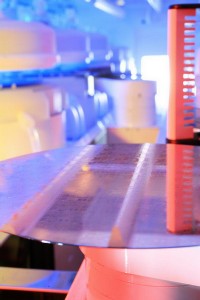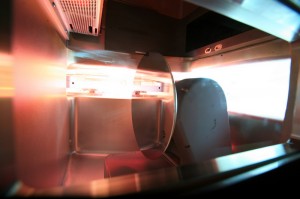ATMI honored

Thanks to its original “foo-foo” powder ”“ in the words of a founder ”“ ATMI Inc. was included on a short list of companies inducted into a Small Business Administration hall of fame.
Along with high-tech titans Qualcomm Inc. and Symantec Corp., Danbury-based ATMI was one of eight inductees into a Small Business Innovation Research hall of fame, recognizing its success commercializing gas canisters developed with SBIR funding that have greatly minimized the chances of toxic gases leaking in semiconductor factories.
Two other Northeast companies also were lauded, both in Massachusetts: A123 Systems Inc., a Watertown-based company that drew a multimillion-dollar investment from Fairfield-based General Electric Co. in 2009 after developing batteries ideal for running electric vehicles; and iRobot Corp. of Bedford, whose autonomous Roomba vacuum cleaners became a consumer phenomenon.
The awards are named for Roland Tibbetts, who was instrumental in developing the SBIR program.
“Winning the future requires redoubling our commitment to supporting innovative entrepreneurs like those we honor with Tibbetts awards,” Karen Mills, SBA administrator, said in a statement. “In particular, our eight hall-of-famers started small, but their growth has powered our economy for years. Their stories illustrate the promise of the new generation of innovative entrepreneurs and remind us all how central the success of one high-growth small business can be to our competitiveness as a nation.”
It marked the second major SBIR accolade for a local company in the past few months, after Monroe-based M Cubed Technologies Inc. received one of the U.S. Army”™s first two SBIR commercialization awards for its development of armored inserts that have resulted in more than 250,000 tiles produced to date, totaling $55 million in sales. M Cubed also produces materials in Monroe used in the ultra-hot kilns used by the semiconductor industry.
If like M Cubed not exactly a household name, ATMI”™s founders nevertheless came up with a life-saving breakthrough ”“ canisters that virtually eliminate the risk of toxic gases seeping into working areas in semiconductor factories and other industrial settings.
ATMI was founded in 1986 by alumni of American Cyanamid, which at one time produced myriad consumer brands from Centrum vitamins to Pine Sol floor cleaner. As the company downsized in the years leading up to its 1994 American Home Products, its senior research manager in Stamford, Gene Banucci, worked to help employees set up new ventures.
Banucci was recruited himself to join the group as CEO, which set up in a New Milford garage as Advanced Technologies Materials Inc. As Banucci tells it, the founders put up a sign early on stating: “ATM ”“ deposits only, no withdrawals.”
At that point, no one yet knew what a cash machine the company was to become. ATMI had $367 million in sales last year.
ATMI quickly won an SBIR grant producing small tubes filled with what he jokingly termed “foo-foo powder” to keep gases pure as they are transferred into semiconductor fabrication equipment like ion deposition machines that bombard wafers to form the substrates needed for chips.
But the company”™s big breakthrough occurred when it came up with a canister filled with its “foo-foo powder” to keep killer gases from escaping in plants ”“ a scenario all too common in the early days of the chip industry.
“There was a notorious incident in Japan,” Banucci said. “People were very leery about handling these materials.”
In essence, gas particles attach to the material inside the canister, staying attached even if the canister is inadvertently opened in a manner that could cause a leak. Mindful that semiconductor labs operate using vacuum environments, the gases can only be extracted once in a vacuum setting in which the pressure inside the canister exceeds that of the surrounding area.

